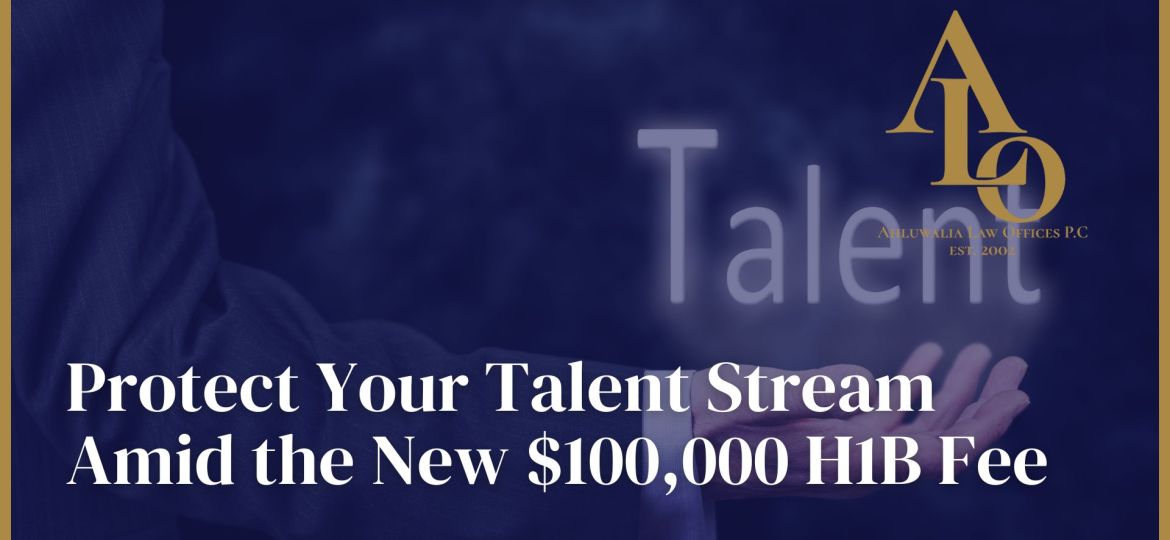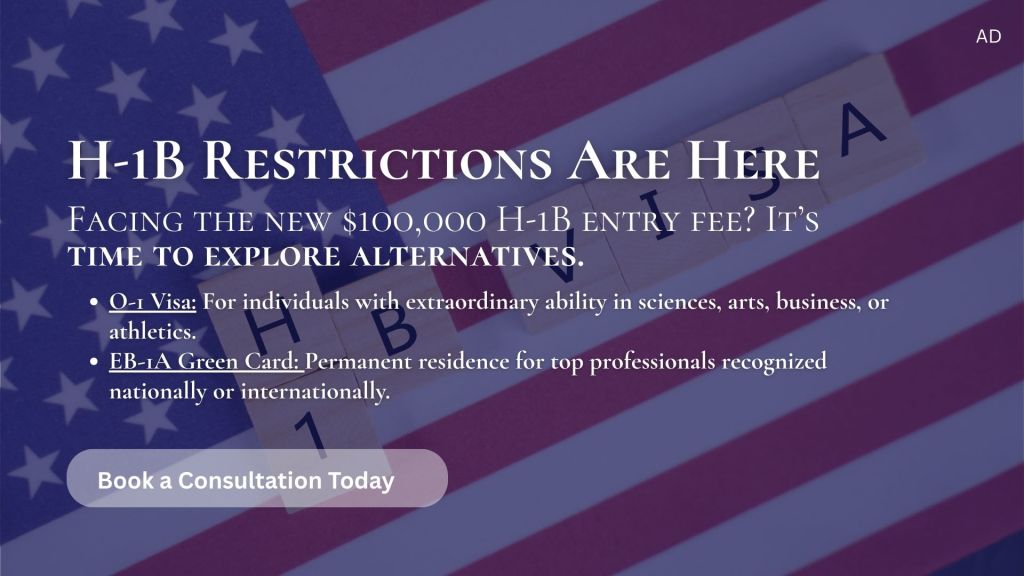
The recent presidential proclamation introducing a $100,000 entry fee for H-1B workers has sent shockwaves through the U.S. employer community. Companies that rely on global talent—especially in technology, healthcare, finance, and research—now face increased costs and uncertainty in maintaining their workforce.
For employers committed to retaining and attracting top international professionals, it is critical to evaluate strong alternatives to the H-1B program. Two powerful options stand out: the O-1 visa and the EB-1A immigrant visa.
Why Employers Should Pivot from H-1B
- Cost Barrier: The new $100,000 fee makes sponsoring H-1B workers financially burdensome.
- Uncertainty: Annual lotteries and strict caps already limited predictability in workforce planning.
- Disruption Risk: Current H-1B employees abroad may face reentry restrictions, leading to staffing gaps.
To remain competitive, U.S. businesses must adopt immigration strategies that minimize risk and highlight talent retention.
O-1 Visas: Recognize and Retain Extraordinary Talent
The O-1 visa provides a temporary solution for employees with “extraordinary ability” in sciences, education, business, arts, or athletics. According to USCIS, extraordinary ability is evidenced by national or international recognition of sustained excellence.
Employer benefits:
- No lottery or cap restrictions—employers can hire directly based on merit.
- Event or project-based authorization, tailored to business needs.
- Faster processing compared to some H-1B timelines.
This option allows employers to recognize star performers and ensure they remain in the U.S. without facing the H-1B lottery or new financial hurdles.
Learn more about O-1 requirements on USCIS »
EB-1A: Build a Permanent Talent Pipeline
For long-term planning, the EB-1A immigrant visa offers employers a way to support individuals with extraordinary ability in their fields. Unlike the H-1B, the EB-1A leads directly to permanent residency, and crucially, does not require employer sponsorship.
Employer benefits:
- Stability: Employees gain permanent residency, reducing turnover risk.
- No labor certification process, minimizing administrative delays.
- Self-petition option for employees, reducing employer burden while still ensuring retention.
Supporting employees through the EB-1A process allows employers to solidify relationships with top talent and build a long-term workforce strategy.
Read more on EB-1A eligibility from USCIS »
Safeguarding Your Workforce
The $100,000 H-1B fee creates immediate challenges for U.S. businesses, but proactive employers can protect their talent stream by turning to immigration categories that prioritize extraordinary achievement.
At Ahluwalia Law Offices, we guide employers in assessing their workforce, identifying candidates eligible for O-1 or EB-1A classification, and preparing applications that meet stringent USCIS requirements. By exploring these alternatives, companies can avoid disruption, reduce compliance risks, and safeguard access to the world’s top professionals.


